October 11, 1913: Frank Klaus, middleweight champion of the world, sits casually in his nook of the ring in Pittsburgh’s Outdated Metropolis Corridor, joking with numerous mates and hangers-on. Smiling with the self-assurance of an completed pugilist who has whipped a few of the greatest fighters on the earth, “The Braddock Bearcat” asks his buddies if he ought to take out his adversary within the opening spherical or permit him the dignity of lasting into the second. The challenger, a rugged however restricted puncher and fellow Pittsburgher named George Chip, is regarded by all as little greater than a modest payday earlier than Klaus departs America for a profitable tour of boxing-mad Australia.
Six rounds later and the flippantly regarded Chip was nonetheless on his ft and throwing punches, as the group grew more and more impatient with Klaus for stalling. The champion appeared in management however appeared to be goofing round together with his challenger. After which, “It got here up from nowhere,” wrote Florent Gibson of The Pittsburgh Day by day Submit. A half-uppercut, half-hook that “stopped flush towards Frank’s jowl, a number of levels southeast of his ear.”
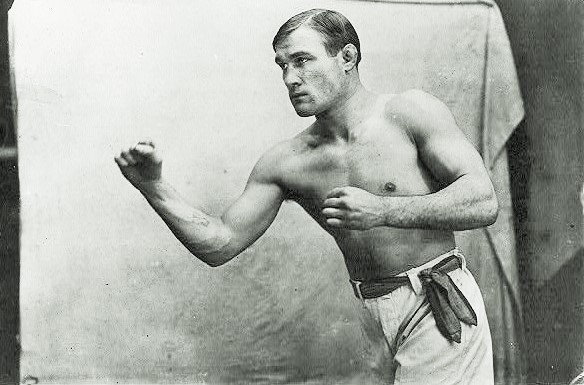
The ability of the blow actually lifted Klaus into the air earlier than he got here to relaxation on his again. By climbing the ring ropes, the champion made it to his ft by the depend of seven, however then tumbled again down with out being hit. Having then clambered up at 9, Klaus was clutching the ropes as a punch loaded with all of the unhealthy intentions Chip might muster collided together with his cranium. The ropes held Klaus up, however he had no clue the place he was. As Chip, with the indifferent calm of an executioner, drew again to goal one other proper hand, referee Tom Bodkin jumped in. “Frank insisted that he was choosing stunning blue roses from a rhododendron bush, however nobody would consider him,” wrote Gibson, “and he was aimed within the course of his dressing room.”
Unheralded George Chip was the brand new middleweight champion of the world. His overjoyed father, an immigrant laborer, rushed into the ring and wrapped George lovingly in his arms.
Born in Scranton, Pennsylvania on August 25, 1888 as George Chipulonis, the brand new champion had been named after his father, who had in flip been named after his father. In response to most sources, George’s mother and father had immigrated from Lithuania, although at the least one authorities doc says Poland. Scranton is within the northeast part of Pennsylvania, however when he was a toddler, the household ventured throughout the state to New Fort, close to the Ohio border, about fifty miles northwest of Pittsburgh. As a result of it was a railroad hub and work could possibly be present in its limestone quarries, New Fort’s inhabitants was exploding on the time.
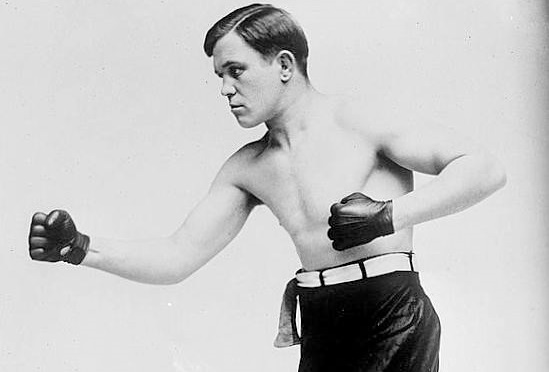
Early newspaper accounts establish Chip as a product of Madison, Pennsylvania, a group even nearer to Pittsburgh, however to the southeast in Westmoreland County. It was right here that George labored as a younger grownup, constructing his energy as a blacksmith employed by the native coal mine. Solely 5 ft, eight inches tall, his each day labors resulted in a closely muscled physique and signature stocky construct. When not toiling over the anvil, the athletic younger man could possibly be discovered on the soccer discipline or the baseball diamond, enjoying alongside the miners.
Chip’s begin in boxing got here in close by Greensburg. His athletic presents had introduced him to the eye of the mine’s superintendent, and when each attended a boxing match there, the tremendous requested the blacksmith how he thought he would possibly fare as a pugilist. Chip replied that he didn’t know, however he was keen to seek out out. The superintendent spoke to the membership homeowners who then booked George in a supporting bout on their subsequent card, however when a fighter failed to indicate for the principle occasion, George stepped up. With no novice expertise, George made his professional debut in a primary occasion match in Greensburg on January 30, 1909, defeating one Billy Manfredo by second spherical disqualification.
Chip’s lack of expertise and education made him a restricted boxer, however he was a keen slugger, and he might punch with the perfect. “Chip is a fighter in each sense of the phrase,” reported England’s Mirror of Life after he received the title, “and he’s a formidable one at that. He’s a kind of rugged, stockily constructed lads who retains ploughing in after his opponent each second of the combating time.” On the native entrance, The Pittsburgh Day by day Submit thought-about Chip’s two-fisted energy his “inventory in commerce, however he carries additionally a crude cleverness, a cunning mind and a rugged physique that allows him to take monumental a great deal of punishment and nonetheless be sturdy.” On this method, Chip turned an attraction in Greensburg, as soon as battling two males on the identical evening. He made his Pittsburgh debut within the Duquesne Gardens on March 23, 1910. The end result was a third-round stoppage loss to the extra skilled “Buck” Crouse.
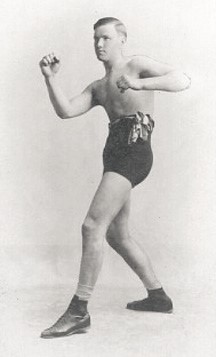
This was the period of no-decision bouts, when official referee or judges’ selections have been unlawful in Pennsylvania, a misguided effort by lawmakers to discourage the playing and corruption related to boxing. Sports activities followers relied upon papers like The Pittsburgh Submit-Gazette and The Pittsburgh Press to inform them who deserved to win the bouts and picked up on their bets accordingly. Whereas Chip was an entertaining fighter, he was hardly thought-about one of many metropolis’s elite skills. Three of his brothers additionally turned professional fighters, with brother Joe scoring a stoppage over the legendary Harry Greb in 1913. George additionally fought some large names, together with Jack Dillon, Leo Houck, and Jeff Smith, however not often got here out on high towards these extra well-rounded combatants.
It’s no marvel then that when Frank Klaus, a fellow Pittsburgher acknowledged by many because the middleweight champion of the world, entered that Outdated Metropolis Corridor ring towards George, he did so in a carefree, joking temper. Each males have been stocky, highly effective, and rugged sluggers, so it was a bit like trying within the mirror for Klaus, however a funhouse mirror. Every little thing Chip might do effectively, Klaus was thought to do even higher; actually Klaus thought so. Anticipating a simple evening, he principally performed with the challenger, drawing out the combat and worsening followers. Then got here that fateful sixth spherical, when Chip’s pulverizing proper fist crashed dwelling.
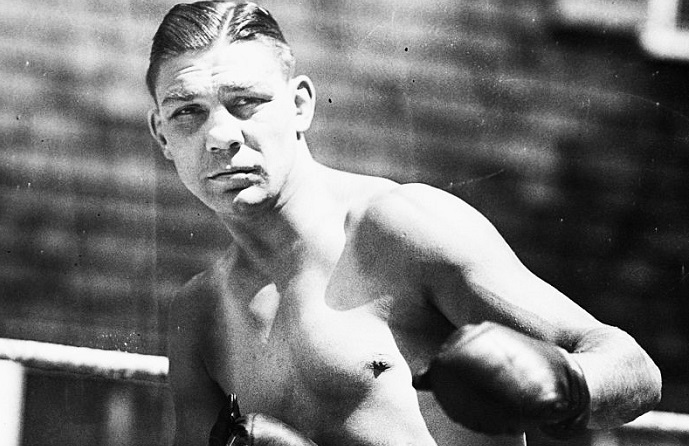
It was a fluke, claimed Klaus, a fortunate punch. Nope. On the Duquesne Gardens on December 23, 1913, roughly 4 thousand followers paid a $5,700 gate, the most important within the metropolis that 12 months, to see the rematch. From spherical one, George entered the ring a person on a mission, that mission being to “hit Klaus on his battleship jaw and sink the boat,” reported The Day by day Submit. Equally, Klaus arrived in terrific form, centered, and decided to avenge his loss. It was a hard-fought affair, however in spherical 5, simply as Klaus appeared to be gaining the benefit, the champion let unfastened with an surprising left hook that struck Frank’s jaw and spun him into the ropes. Chip attacked, and a one-two mixture dropped “The Bearcat” for a depend of six. Seeing his dazed foe wrestle to his ft, Chip leapt “like a panther” and Klaus was quickly down once more for a depend of three. Solely by utilizing the ropes was the previous champion capable of make it to his ft, however when he did the referee stopped the combat. “Chip knocked Klaus’ head off. That tells the story in its entirety,” summarized Metal Metropolis sportswriter Leslie Macpherson, Jr.

George obtained a $1,425 payday for his large win over Klaus, who subsequently retired. The Pittsburgh papers predicted that Chip would sit on his title awhile and acquire straightforward paydays in unofficial exhibitions “across the circuit.” Nonetheless, he proved a busy champion, defending the championship 3 times in January, 1914 alone. On April 7, 1914, he put the title on the road in Brooklyn towards native boy Al McCoy, who was described as an “obscure middleweight” even within the New York papers. Joe Chip had been scheduled to face the Brooklyn membership fighter, however fell sick, so his brother George determined he would step in in order to not disappoint the followers and earn a fast buck. When he heard his son was about to combat the champ, McCoy’s personal father wager towards him.
Sportwriters seen that McCoy seemed terrified throughout the referee’s directions. The champion, “bull-throated, closely muscled, and forbidding as a snarling wolf,” lunged out of his nook seeking to go dwelling early, and it labored. However not the best way he meant. Concern produces nice quantities of adrenaline, and because the smiling Chip got here boring in after him, the desperately retreating McCoy lashed out with a fast left uppercut that despatched Chip down “like a pole-axed steer.” The referee counted ten, however there was no want. George didn’t jolt awake till the depend of eight. With the very first punch he had landed within the combat, Al McCoy was now an much more unlikely champion than George Chip had been.
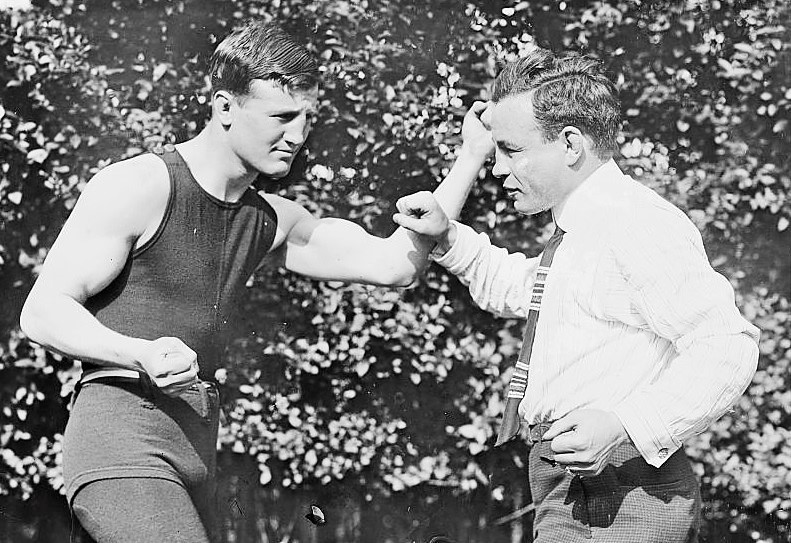
George once more traveled to Brooklyn for the rematch. He scored two knockdowns and even the New York papers needed to admit he had the higher of the motion, however the combat went the ten-round distance, and, due to the no-decision rule, an official verdict couldn’t be rendered and McCoy held onto his title, in any other case Chip might need been a two-time middleweight champion.
Combating on, Chip continued to face the greatest middleweights the game needed to supply. He did battle in his post-championship years with the likes of Dillon, Houck, Smith, Greb, Les Darcy, Mike Gibbons, and Tommy Gibbons, all of them Corridor of Famers, successful some however shedding extra. In 1915, he held world mild heavyweight champion Dillon to a ten-round draw. The subsequent 12 months, he obtained consensus recognition from the press for getting the perfect of Greb in a no-decision bout, although “The Smoke Metropolis Wildcat” would flip the tables in future contests. George Chip retired in 1922, having fought his final bout in Pittsburgh’s Exposition Corridor.
Returning to New Fort after his profession ended, he raised two sons together with his spouse and labored for a utility firm. On Friday, November 4, 1960, a 72-year-old George Chip was strolling alongside Route 168 close to his dwelling when he was struck by a passing vehicle. Struggling extreme accidents, he was delivered to a hospital however died two days later. — Kenneth Bridgham


